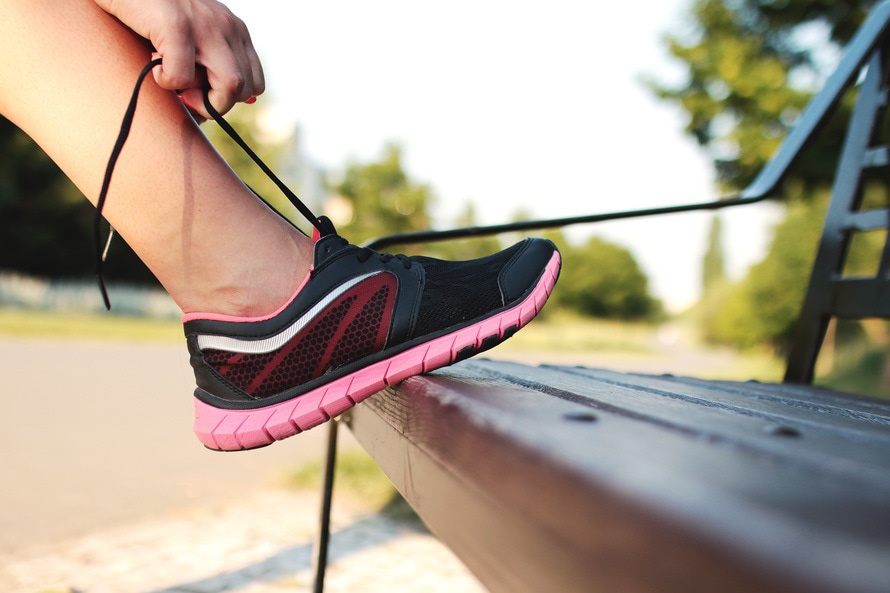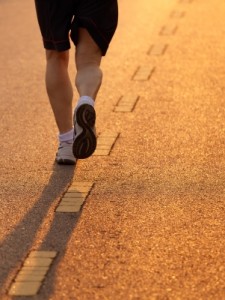- Calls to this hotline are currently being directed to Within Health or Eating Disorder Solutions
- Representatives are standing by 24/7 to help answer your questions
- All calls are confidential and HIPAA compliant
- There is no obligation or cost to call
- Eating Disorder Hope does not receive any commissions or fees dependent upon which provider you select
- Additional treatment providers are located on our directory or samhsa.gov
Important Considerations of Anorexia and Exercise

A group of researchers at the University of Sydney in Australia, asked an interesting question about anorexia and exercise: do people with anorexia nervosa recognize or admit how much they are exercising? [1]
As a therapist working in eating disorders since 2003, I learned long ago that many individuals with a diagnosis of anorexia find themselves zealously committed to burning calories. I still recall the many times my partner therapist would notice patients flexing their stomach muscles as we sat together in group therapy. Even while sitting, the patients would find a way to exercise! Even more surprising is that my partner would catch it!
To better understand how aware those with anorexia are of their movement, the researchers in Sydney gave a group of outpatient clients accelerometers to wear around the waist. These devices measured the amount of activity done over four days.
This data was then compared with what each client reported for physical activity during that same time. Their findings? “We found that people under-reported their light activity on the self-report questionnaire (e.g., walking), but did not under-report their moderate or vigorous activity.”
They also measured whether the tendency to compulsively exercise was related to the accuracy of self-reported activity.
“We found that people whose exercise was more compulsive had more accurate self-reported total exercise.”
I find that fascinating. Those who were more compulsive were also more accurate. What drives this?
Does the same drive to compulsively exercise drive a compulsion to be honest? Not in my experience. Many of the compulsive exercises I worked with also felt compelled to hide or deny secretive exercise.
Does increased accuracy in the self-report reflect a motivation to change? Again, the researchers found only a weak connection between the two issues of anorexia and exercise.

In other words, those who compulsively exercised more may also feel compelled to keep accurate records of the exercise and how many calories they burned.
Another factor that may be involved with excessive exercise is staying warm. A 2012 study concluded that many anorexic patients might exhibit increased movement simply to stay warm. The study went on to suggest that keeping treatment facilities warmer might benefit treatment. [2]
These are fascinating ideas, but for me, it merely reminds me of the people behind the research. Each number, datapoint, and academic analysis represents real people who feel so compelled to exercise and burn calories that they sometimes can think of nothing else.
And behind these compulsions are stories—stories of how the compulsive behaviors began, of how the fear, anxiety, and obsession took hold. They are compulsively exercising for a reason, and it is helpful to identify and address it. [3]
This research is fascinating and needs to continue. It is a reminder that as I sit with clients, I need to pursue them as people who are feeling overwhelmed and compelled to do unhelpful behaviors that ultimately lead to destruction if they cannot be interrupted.
REFERENCES
[1] Bezzina1, L., Touyz1, S., Young1, S., Nasim, Clemes3, S., Meyer4, C., … Hay, P. (2019, August 23). Accuracy of self-reported physical activity in patients with anorexia nervosa: links with clinical features. Retrieved October 18, 2019, from https://jeatdisord.biomedcentral.com/articles/10.1186/s40337-019-0258-y. [2] Carrera, O., Adan, R. A. H., Gutierrez, E., Danner, U. N., Hoek, H. W., van Elburg, A. A., & Kas, M. J. H. (2012). Hyperactivity in anorexia nervosa: warming up not just burning-off calories. Retrieved October 18, 2019, from https://www.ncbi.nlm.nih.gov/pmc/articles/PMC3407098/. [3] Kolnes, L.-J. (2016, March 9). ‘Feelings stronger than reason’: conflicting experiences of exercise in women with anorexia nervosa. Retrieved October 18, 2019, from https://jeatdisord.biomedcentral.com/articles/10.1186/s40337-016-0100-8.About the Author:

This includes special interest in helping those with compulsive and addictive behaviors such as internet and screen addiction, eating disorders, anxiety, and perfectionism. Specifically, he has worked with eating disorders since 2003 and has learned from many of the field’s leading experts. He has worked with hundreds of individuals facing life-threatening eating disorders in all levels of treatment. His website is wtravisstewart.com
The opinions and views of our guest contributors are shared to provide a broad perspective on eating disorders. These are not necessarily the views of Eating Disorder Hope, but an effort to offer a discussion of various issues by different concerned individuals.
We at Eating Disorder Hope understand that eating disorders result from a combination of environmental and genetic factors. If you or a loved one are suffering from an eating disorder, please know that there is hope for you, and seek immediate professional help.
Published October 25, 2019, on EatingDisorderHope.com
Reviewed & Approved on October 25, 2019, by Jacquelyn Ekern MS, LPC
